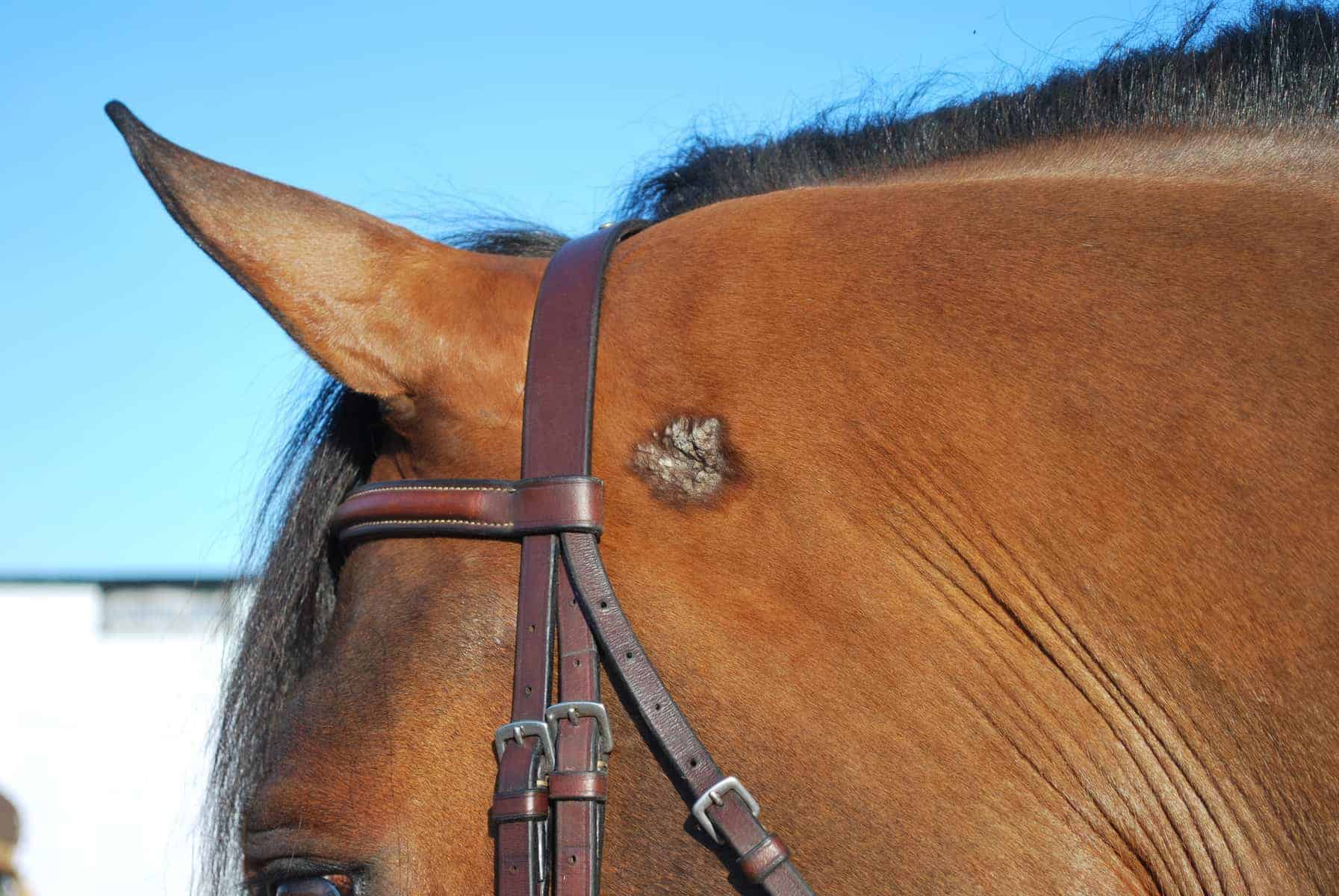Blood Biomarkers Could Help Diagnose Sarcoids in Horses

Sometimes it’s obvious your horse has a sarcoid—those skin tumors with a classic nodular or verrucous (cauliflowerlike) appearance are difficult to miss. But what about that patch of rough-looking skin or that little warty lump? Are they sarcoids? Your veterinarian can run diagnostic tests for sarcoids in horses, but those techniques aren’t without their challenges. Gold-standard biopsies can aggravate the tumors and make the disease worse, and less-invasive swabbing techniques don’t detect all cases.
But researchers in Switzerland are working toward a new way to confirm sarcoids: They’ve tested an innovative blood test that looks for recently identified biomarkers indicative of sarcoids.
The focus is on microRNAs (miRNAs)—tiny RNAs that circulate freely in the blood without cells and don’t code for anything, but seem to target and silence messenger RNAs, said Lucia Unger, DrMedVet, Dipl. ECEIM, and Vinzenz Gerber, DrMedVet, PhD, Dipl. ACVIM, ECEIM, both of the University of Bern Vetsuisse Faculty Swiss Institute of Equine Medicine and Agroscope Bern
Create a free account with TheHorse.com to view this content.
TheHorse.com is home to thousands of free articles about horse health care. In order to access some of our exclusive free content, you must be signed into TheHorse.com.
Start your free account today!
Already have an account?
and continue reading.

Written by:
Christa Lesté-Lasserre, MA
Related Articles
Stay on top of the most recent Horse Health news with











